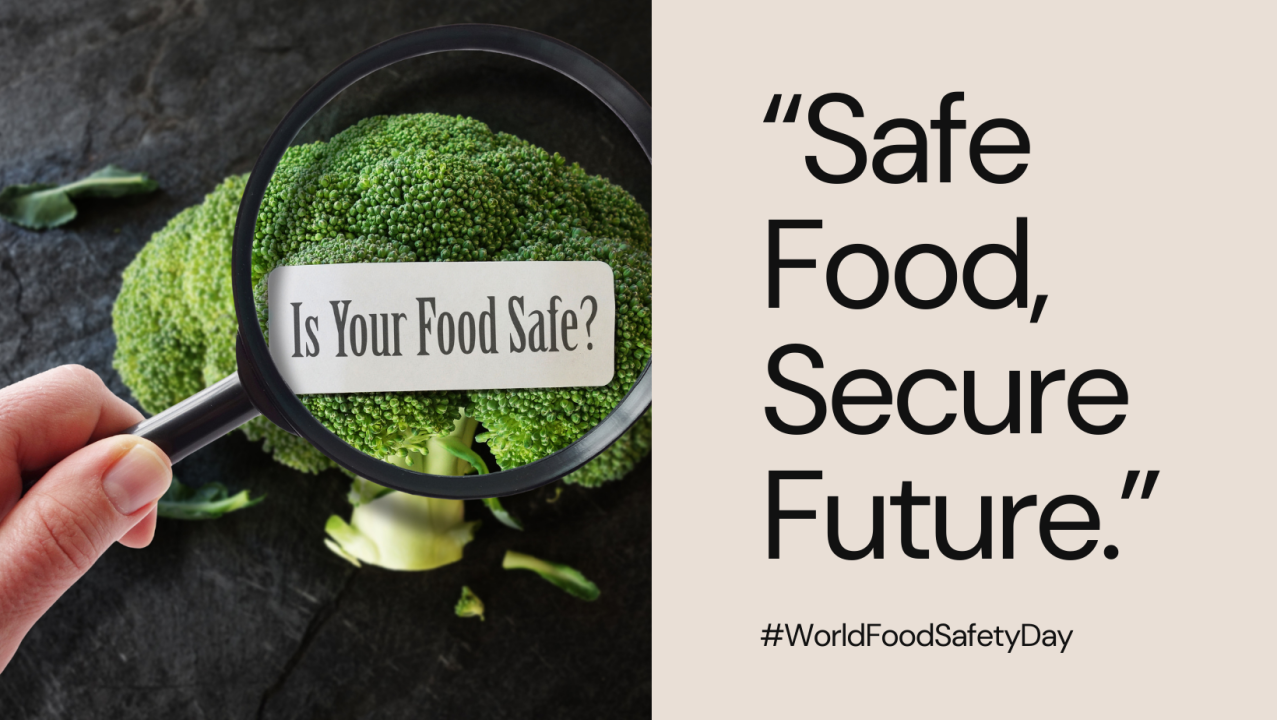Every year on June 7th, the world unites to celebrate World Food Safety Day, a pivotal reminder of the essential need for food safety in our everyday lives. This day is not just about acknowledging the importance of safe food; it’s about sparking action and awareness through powerful communication and policy campaigns. Media and news play a vital role in advocating for stringent food safety laws, ensuring that the food on our tables is both safe and nutritious.
The Power of Communication and Policy Campaigns
Communication: The First Line of Defense
Effective communication is the cornerstone of food safety. Through awareness campaigns, the public learns about crucial food hygiene and safe handling practices. These campaigns empower consumers by informing them about their rights and the standards they should expect from food producers and suppliers. When consumers are informed, they can make better choices and advocate for higher standards.
Policy Campaigns: Advocating for Change
Policy campaigns are instrumental in driving legislative changes. Advocacy groups and NGOs often lead these campaigns, pushing for stricter regulations and enforcement mechanisms. By highlighting the risks associated with foodborne illnesses and showcasing the benefits of stringent food safety laws, these campaigns influence policymakers to take decisive action.
The Role of Media and News
Media and news outlets are pivotal in ensuring that food safety remains a priority for both policymakers and the public. Investigative journalism can uncover instances of food safety violations, prompting immediate action from authorities. News reports on foodborne illness outbreaks can galvanize public opinion and lead to rapid policy responses.
Recent Case Studies
Food Safety Incident at McDonald’s in Noida, India
In a recent incident in Noida, FDA officials swiftly responded to a consumer complaint of foodborne illness at a McDonald’s outlet in Sector 18. Following the complaint through the Food Safety Connect portal of FSSAI, a consumer fell sick after consuming an aloo tikki burger and french fries.
Archana Dheeran, Assistant Commissioner (Food) FDA, Gautam Buddh Nagar, confirmed the immediate response and collected samples of palm oil, cheese, and mayonnaise from the outlet for testing. This proactive action underscores the FDA’s commitment to ensuring food safety standards.
The incident highlights the necessity of stringent food safety protocols and regular inspections to prevent foodborne illnesses. Prompt and thorough investigation of consumer complaints by regulatory bodies like FDA and FSSAI is crucial for safeguarding public health.
Paris Pizzeria Outbreak Highlights Food Safety Concerns
A recent outbreak at “Le Four Chaud” pizzeria in Paris has raised serious concerns about food safety standards in France. In late May 2024, dozens of patrons reported foodborne illness symptoms after dining at the restaurant. Health officials found critical violations, including improper food storage temperatures, cross-contamination, and inadequate staff hygiene practices. These violations go against French food safety regulations.
At least 35 cases of foodborne illness have been confirmed, prompting the closure of the restaurant pending further investigation and legal action. This incident underscores the need for stricter food safety regulations, increased inspections, and comprehensive staff training to prevent future outbreaks and ensure public safety.
WHO’s Insights on World Food Safety
Access to safe and nutritious food is essential for sustaining life and promoting good health. Contaminated food, which may contain harmful bacteria, viruses, parasites, or chemicals, can cause over 200 different diseases, including cancer and diarrhoea. Each year, nearly 600 million people worldwide become ill from tainted food, resulting in 420,000 deaths and 33 million years of healthy life lost (DALYs).
Food security, nutrition, and safety are closely linked. Unsafe food contributes to cycles of illness and malnutrition, particularly affecting vulnerable groups such as children, the elderly, and those with pre-existing health conditions. Conversely, a safe food supply supports sustainable development by boosting economies, trade, and tourism, while ensuring food and nutrition security. Factors like globalization of food trade, population growth, climate change, and evolving food systems impact food safety. The World Health Organization (WHO) works to strengthen national and international capacities to prevent, detect, and respond to public health risks associated with contaminated food.
Conclusion
World Food Safety Day highlights the critical importance of safe food practices globally. Recent incidents at McDonald’s in Noida and “Le Four Chaud” in Paris underscore the urgent need for stringent regulations and enforcement. The World Health Organization’s insights reinforce the significant health risks posed by unsafe food, emphasizing the need for enhanced measures to protect public health and promote sustainable development.
 Skip to content
Skip to content 